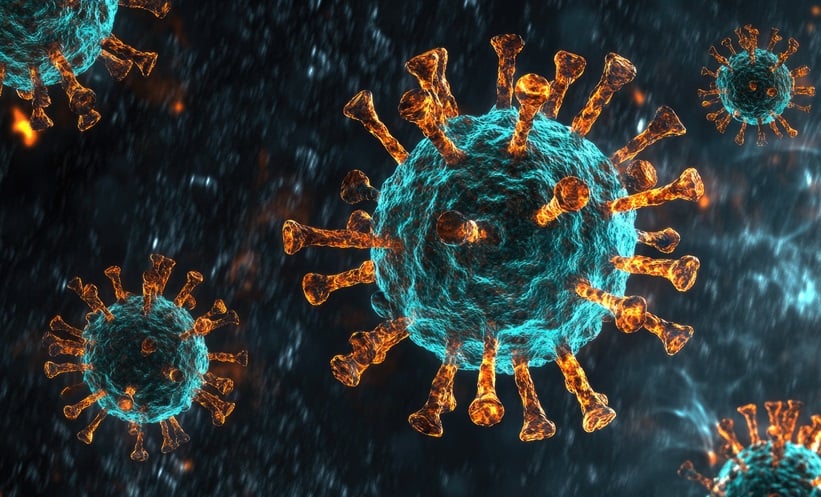THE Democratic Republic of Congo (DRC) currently faces an intensifying mpox outbreak as both subclade Ia and Ib strains show signs of sustained human-to-human transmission in Kinshasa, the nation’s capital.
This surge represents a significant shift in mpox’s epidemiology, which had been largely driven by zoonotic spread. According to a new genomic analysis of 115 mpox virus samples, researchers now confirm that human-to-human transmission, including sexual transmission, may be key in the virus’s recent spread.
The study reveals that mutations consistent with APOBEC3-type changes, a genetic marker indicating human-to-human spread, are present in 63% of subclade Ia and 66% of subclade Ib samples. These mutations, rare in zoonotic transmission, highlight how the virus is adapting to spread between people in short timeframes. Such mutations contrast with the slower, error-correcting replication process typical of mpox, which results in only about one nucleotide change every 3 years. APOBEC3-type mutations, however, introduce around six changes per year, enabling researchers to map virus transmission more effectively.
This pattern suggests a shift from sporadic animal-to-human outbreaks to more sustained community spread in Kinshasa. Subclade Ia samples from 2023 and 2024 showed introductions without clear local transmission chains until recently, indicating an emerging establishment of these viral clusters within Kinshasa’s population. Meanwhile, subclade Ib, originating in Sud-Kivu, has been spreading steadily, linked to new cases in regions beyond the capital, including Kwilu, Kwango, and Kongo-Central.
The outbreak’s trajectory is concerning to public health officials, with potential for regional and international spread if containment measures are not improved. Alarmingly, three cases of clade Ib mpox have now been detected in the UK.
Health authorities are calling for heightened monitoring and further investigation into the virus’s spread mechanisms, as Kinshasa’s densely populated areas are proving to be hubs of viral transmission.
Reference
Kinganda-Lusamaki E et al. APOBEC3 deaminase editing supports human-to-human transmission in escalating mpox outbreaks of both clade Ia and Ib in Kinshasa, Democratic Republic of the Congo, July-September 2024. medRxiv. 2024; DOI: 10.1101/2024.08.13.24311951.








